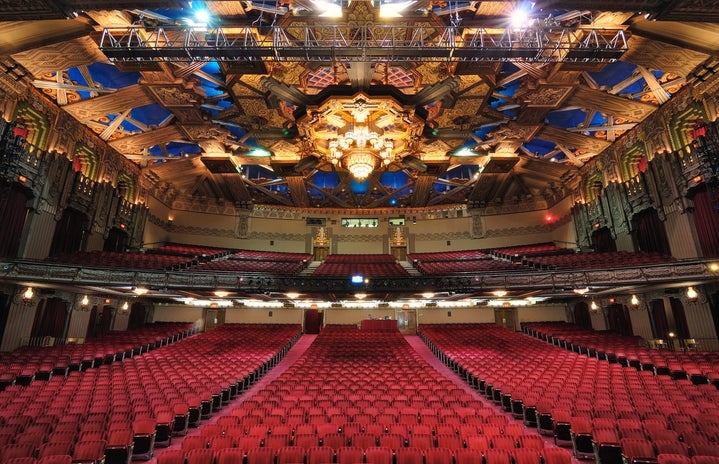It’s award show season. The 95th Academy Awards took place on the 13th of March and the Grammys happened last month. But when artists like Harry Styles are sweeping categories and then saying things like “This doesn’t happen to people like me very often,” it can feel like the biggest artists and these institutions are increasingly out of touch with their audiences and mainstream media. This begs the question, are awards shows, like the Grammys and the Oscars, still relevant? Do young people even care?
Simply put, the answer is no. According to Nielsen data, this past Grammy Awards show had the third lowest ratings of all time. 2021 had the lowest viewership to date, as 97.9% of 18-49 year olds in the US did not tune in. While it is important to consider all the factors at play here, such as the rise of streaming services and lack of access to cable television, award shows are undoubtedly going out of fashion.
So why are younger generations not paying attention? Awards like the Grammys, Brits, and Oscars, are all determined by rounds of voting by special, ‘qualified’, members. According to the Critical Media Project, however, of the 6,000 voters who make up the Academy, 94% are white, 77% are male, and 54% are over 60 years old. A similar demographic makes up the Recording Academy. How can we expect this demographic to accurately vote on the best films, actors, albums, and artists, especially when such a large percentage of those artists are not proportionally represented?
In fact, why is their determination even relevant? According to Social Shepherd, women make up 56% of Spotify users and ages 18-34 make up 55%, as of 2023. While Spotify doesn’t represent all consumers of music, it’s certainly relevant for calculating best new artists and new genres. If the Grammys want to remain pertinent to young people, they need to consider this demographic more.
The Grammys in particular have had a history of snubbing and underrepresenting black artists. In its 63 years, only 10 Album of the Year awards have gone to black artists. Kendrick Lamar’s To Pimp a Butterfly, was famously snubbed (to Taylor Swift’s 1989), despite it being featured in Rolling Stone’s ‘Top 20 Albums of All Time.’ It is also ranked fifth in Pitchfork’s ‘200-Best Albums of the last 25 years’ (and ninth for good kid, m.A.A.d city), which is reader-polled, and is music critic Anthony Fantano’s highest rated album of his career. Time and time again, artists who have lasting, popular impact on music, go unrecognized, or beaten by white artists who, like Harry Styles, seem to live in a fantasy world of victimhood.
This fantasy of victimhood has also afflicted Taylor Swift, who has undeniably had a profound impact on popular music. However, she has been sufficiently recognized, winning 12 Grammys over the course of her career. The structures in place in the music industry have put her at a disadvantage as a woman, but have also benefited her as a white person. Swift has been vocal about abuse and sexism in the music industry. But when it comes to acclaim and recognition, Taylor Swift has not missed out, and she continues to support the institutions which leave equally talented and influential artists out of the picture.
Are the Academy Awards any different? I grew up watching the Oscars, and while the music I listen to has almost nothing to do with the Grammy’s, the new movies I watch are definitely influenced by the Academy. In recent years, the Oscars have become something of cultural interest (the MeToo movement, the ‘La La Land’ mixup, and Will Smith’s surprise last year). Past hosts like Ricky Gervais have used the platform to criticize the institution and call out big names in the industry. The meta-commentary and self-awareness create a moment where as a viewer, you feel seen, and criticism heard, (maybe my favourite actor is one of us!). But that is momentary, and while the show can make fun of itself all night long, the problems in the industry and with the Oscars persist, and actors and actresses still show up, smile on the red carpet, and thank the Academy.
The gendered categories for the Academy Awards have also been criticized, with non-binary The Crown actor Emma Corrin calling for gender-neutral categories. But this is also dangerous, as the Brit awards recently combined their Best Female and Male artist categories, and as a result, five men were nominated.
So as these age-old institutions work out how to remain relevant, inclusive, and accurate, Gen Z will wait and wonder, are the Oscars and Grammys obsolete?
Edit: Everything Everywhere all at Once’s Michelle Yeoh and Ke Huy Quan’s wins are notably monumental and should be acknowledged. However, honorary wins like Jamie Lee Curtis’ last Sunday also take away from the meaning and importance of these categories, if the award is not actually going to the objectively best performance. Decisions like this from the Academy only further attest to how old-fashioned this institution still is.


